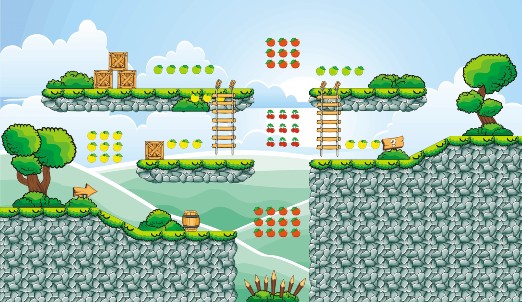- Fun Games To Play While Listening To Music Online Internet Radio
- Fun Games To Play While Listening To Music Online In China
Related Articles

- 1 First Grade Activities Helping With Short Vowel Sounds
- 2 Adjective Games: Ideas for Fun Adjective Activities in the Classroom
- 3 Elementary Music Class Activities for Substitute Teachers
- 4 Games to Play to Learn Long Vowel Sounds
- Best Games to Play While Listening to Music? What are some good games to play while listening to music? I imagine most multiplayer FPS's since you don't need to concentrate completely if you don't want to so I can focus more on the music, and you don't need sound when you're not playing seriously anyway.
- Games I can play while listening to music? I like listening to music or audio books sometimes while I play, but my selection of games goes down by a lot.
45 percent of communication is listening, and students with poor listening skills can miss a large amount of information, according to information from the University of Missouri. Listening is an active process, as opposed to the passivity of hearing, but helping students bolster listening skills doesn’t have to be boring. By playing a few listening games, you can encourage strong listening habits and help students connect with more of what they hear. Listening games are also helpful to students studying English as a second language.
I like listening to music or audio books sometimes while I play, but my selection of games goes down by a lot. Right now I have playing a lot of Terarria this way and its been great.
Listen Close, Now Draw
Fun Games To Play While Listening To Music Online Internet Radio
Encourage active listening by having students listen to information, process it, then use it for output. Print or create two different sheets of easily-drawn items, such as shapes, houses, trees, animals, classroom objects or people. Place several items on each sheet, or find a picture with detail -- the more there is to describe, the closer students must listen. Divide students into pairs and sit them back to back. Give each student in the pair a different picture and a sheet of blank paper. One student describes his picture while the other draws; they shouldn’t show their pictures to each other until they both finish. For extra encouragement, let the class vote on whose drawing matches the picture the closest.
Can You Hear the Secret Phrase?
Students will need to listen to each other closely and listen for what’s out of place in this activity. Divide students into pairs or groups and give each a unique, slightly odd secret phrase; for example, 'three happy elves live in my basement.' Give the groups time to plan a dialogue that incorporates the secret phrase once or twice. When they’ve finished planning, let them perform the dialogue for the class. While watching, students try to guess the secret phrase and write it down accurately; they must also write how many times it was said. Give points to students who found the phrase and its repetitions. The student with the most points is the winner.
Remember Your Childhood Games
Younger children, who typically have short attention spans and can sit still for short lengths of time, can play popular childhood games that incorporate both listening and total physical response. Games you can play with preschool through first grade students include Mother, May I?; Red Rover, Red Rover; Duck, Duck, Goose; Simon Says; Teacher Says Please; and Red Light, Green Light. Be careful to only play active games in an area that doesn’t have a concrete floor or furniture with sharp edges.
Circle Up

Fun Games To Play While Listening To Music Online In China

To ensure that students are listening closely when everyone in the classroom is speaking, you might introduce a game with an element of unexpectedness. Have the students stand or sit in a circle. Choose one student to start and give this student a ball. Ask her a question about her favorite something (animal, color, etc.) and why it’s her favorite. The student replies, then tosses the ball to another student, who must give an opinion on the first student’s answer and give her own favorite. Continue until all students have spoken.
References
About the Author
Melissa Harr is a writer and knitting pattern designer with a range of publication credits. Her latest work includes blogging for Smudge Yarns, judging fiction for Ink & Insights 2015 and creating patterns for I Like Knitting magazine. Harr holds a Bachelor of Arts in English from the University of Illinois at Chicago and a CELTA.
Photo Credits
- BananaStock/BananaStock/Getty Images